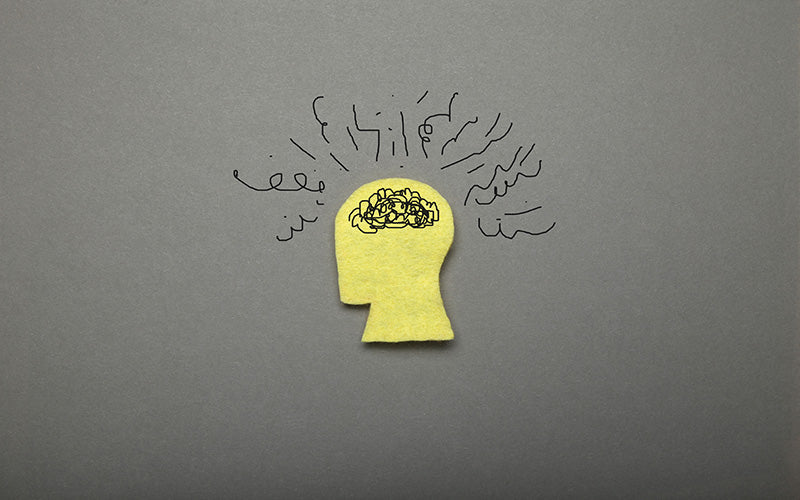Do you struggle with anxiety? According to the National Institute of Health, 32% of U.S. adults experience some type of anxiety disorder and about 50% of people who suffer from Attention Deficit Hyperactivity Disorder (ADHD) will also experience anxiety at some point. As somebody who has lived with anxiety and ADHD for most of my life, I know how challenging it can be to manage both of them.
In this blog post, we will examine the connection between ADHD and Anxiety and highlight some natural coping mechanisms for ADHD and Anxiety.
What is ADHD?
Attention deficit hyperactivity disorder (ADHD) is a common condition that causes impulsivity, and or inattentiveness in children and adults. ADHD symptoms vary by individual. Some people may experience many symptoms, while others only experience a few.
Common symptoms of ADHD include:
- Poor time management
- Hyperfocus
- Hyperactivity
- Lack of focus
- Inattention
- Weak impulse control
To help with the symptoms of ADHD, doctors usually prescribe medication. The two most commonly prescribed medications for ADHD are Ritalin and Adderall. These medications work by increasing the amounts of norepinephrine and dopamine in the brain, which helps with focusing. Because ADHD medications can have benefits but also, many side effects, the decision of taking these medications can become a difficult one.
Individuals diagnosed with ADHD tend to have more anxiety symptoms than those who do not have an ADHD diagnosis.
What is Anxiety?
Anxiety is a feeling of fear or apprehension about what is to come. It is different from fear, which is the body's natural response to immediate danger. Anxiety is part of the body's natural reaction to stress. When feelings of fear or excessive nervousness start to interfere with your daily life, an anxiety disorder may be present.
Common symptoms of Anxiety include:
- Irritability
- Anticipating the worst
- Feelings of apprehension
- Frequent urination or diarrhea
There are many drugs that can be prescribed to treat anxiety disorders. Since each person responds to medication differently, there is not one specific drug that works perfectly for everyone. The prescription drugs that are used to treat anxiety over a long period of time are antidepressants. These affect serotonin, norepinephrine, and other neurotransmitters in the brain.
Although medication is the most popular approach for treating ADHD and anxiety, we have gathered a few of our favorite coping mechanisms for Anxiety and ADHD today.
Create a routine
Creating a routine that is attainable is a great way to start. Try creating a routine that is visible, whether that be on a planner, a calendar on the fridge, or a digital planner on your mobile device. Think of a planner that allows us to see a breakdown of our days, planned out by the hours, days, and weeks to look out into the future. Don't forget to add breaks and lunches into this routine!
Exercise
Moving your body can help regulate focus and emotions. It allows the body to channel hyperactivity into activity instead of restlessness. It can be great for children who suffer from ADHD as well. It is ideal for kids to have movement multiple times a day, especially kids with ADHD. Children might enjoy an organized sport, going for a bike ride, or running in the park with friends. Not only is exercise great for ADHD but also for anxiety. Moving the body decreases muscle tension, lowering the body's contribution to feeling anxious. Consider taking a yoga or a spin class to lower your anxiety.
Nutrition
Diet may contribute to anxiety and ADHD. Limiting processed foods, eating a healthy diet, and identifying food intolerances may be beneficial to you. Studies have shown that some foods can help us feel calm, while others may act as stimulants. We suggest choosing foods that boost serotonin. Try to stay away from sugary snacks or beverages. Eat some protein for breakfast so that your energy levels stay steady throughout the day, and try to avoid or limit your intake of alcohol and caffeine.
Take control with Sol Nutrition
Calm Focus at Sol Nutrition helps your memory by improving your focus and overall mental clarity. Calm Focus helps naturally lower anxiety while helping you stay on task. This powerful combination of herbs helps with relieving irritability, anxiety, and impulsiveness, all while improving mental sharpness. This formula is best for those working long hours at a time. Another one of my favorites is Relax Me. This herbal blend helps to calm you mentally without any feelings of drowsiness. Relax Me promotes a calm mind and body while supporting memory and focus, and promoting reduced levels of stress. Relax Me is the perfect supplement to help you unwind from your day!
Takeaway
For those who would like to take a different approach to ADHD and anxiety medications, natural supplements may be a great alternative for improving quality of life. Natural remedies such as supplements can be used in place or in combination with your anxiety and ADHD medication, but always remember to discuss with your healthcare provider before discontinuing your medication.

Share:
How can I Manage my Stress?
Self-Care for Depression